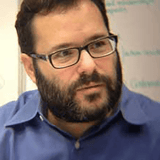Summary
Jen, the curator of the Advancing Research Community, begins the last day of the event by recounting a British folk story called the hope of the Hind, which symbolizes finding hope through small, renewing moments amid crisis. This story serves to frame the day's themes of collaboration, perseverance, and incremental progress in research practices. She then introduces a lineup of speakers who will push boundaries in how research is done within organizations. Jill advocates for transcending traditional data silos to create a holistic understanding of customers and organizational wisdom. Jennifer follows with a practical example of ecosystem mapping to unify disparate data sources. Cora and Rachel emphasize the underestimated value of secondary research and provide actionable tips for integrating it effectively. Muncie emphasizes inclusivity by combining primary and secondary insights, specifically for designing with women in mind. Harry and RS explore the complexities of democratizing insights, questioning accountability, and whether the concept of democratization itself needs reconsideration. Finally, Victor challenges the foundational definitions of data, urging an evolution towards pluralistic and expanded views of what counts as data. Jen closes by inviting attendees to reflect on transforming their research craft through these new perspectives and approaches.
Key Insights
-
•
Small moments of hope and stillness can renew energy and inspire collective action during research challenges.
-
•
Breaking down silos within and across teams is critical to gaining a holistic and truthful understanding of customers.
-
•
Ecosystem mapping allows the practical joining of diverse data sources to create richer insights.
-
•
Secondary research is undervalued but can significantly enhance depth and context when integrated with primary data.
-
•
Combining primary and secondary insights supports stronger inclusivity in design, especially for underrepresented groups.
-
•
Democratization of insight and data raises questions about responsibility and may need to be reconsidered rather than universally adopted.
-
•
Insight democratization has both pros and cons that organizations should carefully weigh.
-
•
Data definitions should be challenged and expanded to embrace pluralistic and diverse perspectives within organizations.
-
•
Incremental progress and community collaboration are effective strategies for overcoming seemingly impossible research challenges.
-
•
Research craft transformation requires stepping back to question foundational assumptions about data and insight workflows.
Notable Quotes
"This encounter with this Hind doesn’t radically change anything on its own, but it gives a small moment of hope and stillness."
"Inch by inch, that village was able to come together as one and find a way through to the other side."
"We all have to break down silos within and across different teams to look holistically at what we know about customers."
"Ecosystem mapping is a practical way to join up different data sources."
"Secondary research deserves significantly stronger consideration than it often gets."
"Bringing together primary and secondary knowledge creates powerful insights, especially for designing inclusively for women."
"Who is responsible for insight and data within an organization? That question is central to democratization."
"We may need to move beyond the concept of democratization altogether."
"We must challenge and push ourselves on what data even means in a plural system."
"Transforming our craft demands we take a step back and ask what it really means to evolve our approach to research."
Or choose a question:
















More Videos
"Concept validation lets us objectively decide which features to build based on perceived usefulness and intent to use."
Standardizing Product Merits for Leaders, Designers, and Everyone
June 15, 2018

"Most strategy today is guesswork based on what others are doing, not based on situational awareness."
Simon WardleyMaps and Topographical Intelligence (Videoconference)
January 31, 2019

"Cisgender binary options in onboarding flows exclude non-binary and gender-expansive identities."
Sandra CamachoCreating More Bias-Proof Designs
January 22, 2025

"It takes at least one team member to choose to set healthy standards for collaboration."
Darian DavisLessons from a Toxic Work Relationship
January 8, 2024

"Stakeholder communication is crucial to professional strategy because without it, we run the risk of activity without impact."
Fisayo Osilaja[Demo] The AI edge: From researcher to strategist
June 4, 2024

"The seven-foot-wide diagram showed the product’s true complexity, sparking necessary conversations with leadership."
Uday GajendarThe Wicked Craft of Enterprise UX
May 13, 2015

"Service blueprints would have helped business units understand backend impacts and responsibilities."
Davis Neable Guy SegalHow to Drive a Design Project When you Don’t Have a Design Team
June 10, 2021

"People felt designs were self-evident and too much explanation was a barrier to using the patterns."
Eniola OluwoleLessons From the DesignOps Journey of the World's Largest Travel Site
October 24, 2019

"Product managers feel design is a black box; they want visibility, transparency, and accountability on timelines."
Aurobinda Pradhan Shashank DeshpandeIntroduction to Collaborative DesignOps using Cubyts
September 9, 2022
















